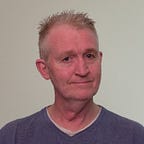Dancing Planetary Futures
The future acts as a mirror for our times but like all mirrors, aspects of the futures before us are distorted by 1. the cultural lenses that shape our perception, 2. by our own configuration of values and emotions. Dealing with cultural conditioning and our personal values-emotional template are two key areas of futures work.
Yesterday I gave a lecture and workshop at the Federal University of Paraiba, Brazil. I had borrowed the title of the session from Sohail Inayatullah’s useful text Questioning the Future. The key to questions are not answers but the journeys we take as we explore them. I made the case that our consciousness is colonized but powerful forces at work in our culture. To free the anticipatory imagination from this conditioning takes work that encompasses critical reflection, cultural creativity, spiritual engagement and embodied play.
We study the future because our assumptions about the future directly impact on our decisions, actions and aspirations today. The whole point of this study of course is to become free from the gravity of the present so that we can actively generate alternatives to the given future (note the singular) promoted by the powerful.
Critical reflection challenges the dominant future promoted by elites — it invites us to be less conditioned.
Cultural creativity looks at our past-present-future nexus and identifies and accesses elements immanent to the present but not yet activated.
Spiritual engagement develops the deep consciousness of relationship that binds everything together — it acts as a critical tool for assessing and improving the quality of relationships between human and human and also human and animate and inanimate.
Embodied play gets us out of our heads and working within our capacity on playful emergence in which we release positive hormones, delight and joy that acts as the foundational disruptor for the critical, cultural and spiritual.
To tie this line of thought together I introduced the concept of the ‘hacker’.
As McKenzie Wark argues in his Hacker Manifesto, a hacker is someone who sees the elements of any system as an algorithm or program but skillfully manipulates it to create new things. I discuss this in another medium reflection. For me the ultimate hack is a grace-hack which disrupts through delight in play and movement. My new edited book Phenomenologies of Grace (Palgrave 2020) will deal with this in considerable depth. I have been lucky to work with Camila Mozzini-Alister on that broader project. Grace hacks are work-shopped sessions which release new visions, a sense of expanded capacity and a good dose of constructive hope.
But getting back to yesterday’s workshop we asked questions like:
What futures do I (we) aspire to?
How do we get there?
What futures do we fear?
Why should I care about the future?
Does the future need us?
Then I drew on my InterPlay tool kit and we tried out a number of processes designed to release some palpable grace in the room. Well it was a great success. The students leaped into it with real enthusiasm — Brazilian’s are not shy. And the translators were challenged too, in keeping up with the fluid and dynamic energy. We ended in a circle where students spoke on the sense of expansion they had experienced and how they could see it connecting with redefining their assumptions about the future.
Dancing in the future in this way begins creative cultural change with the body. If you think about it, we only become cultural beings through the body, from conception on we are being conditioned and wired for culture. We cannot escape the body — we have learnt long ago that dualism is a dead end. So to hack grace via embodied experiences that open up our hearts to relationship, joy and love begins the work of moving us away from cultures of fear, utilitarianism and alienation that we inhabit today. In this space we begin to discover that we can all be so much more and the futures before us begin to seem a little less daunting.
